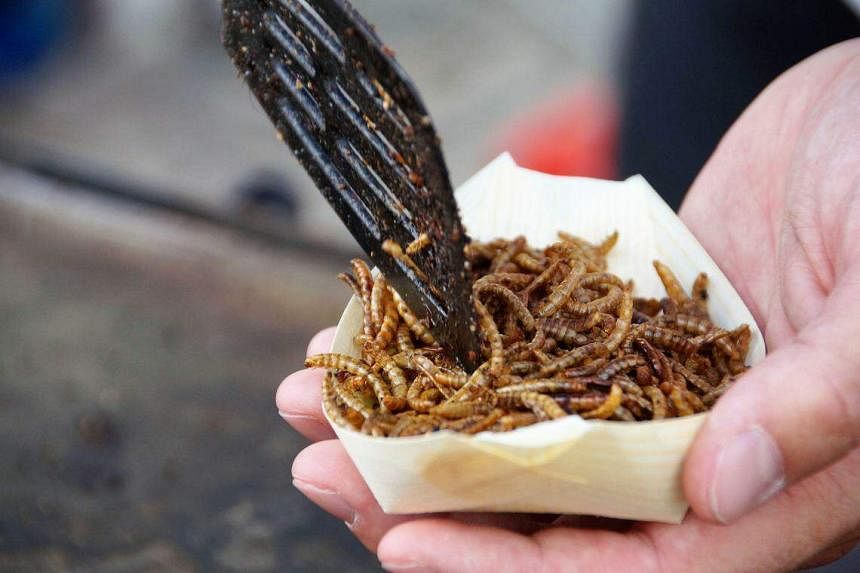
SINGAPORE - A total of 16 species of insects, such as crickets and silkworm pupae, will receive the green light from the Singapore Food Agency (SFA) for human consumption in the second half of 2023.
And consumers here can expect the critters to be served up at eateries directly, or as fried snacks or protein bars. Also on the menu: silkworm cocoons.
The approval of the insects for consumption will be subject to food safety requirements, including treatment processes to kill pathogens and ensuring that they are packed and stored safely to prevent contamination.
The move comes after the agency held a public consultation exercise from Oct 5 to Dec 4 2022 on the regulation of insects and insect products. It received 53 responses. These ranged from scepticism to feedback and concerns from industry players planning to bring in insect products.
SFA told The Straits Times in October 2022 that it had conducted a scientific review and assessed that specific species of insects with a history of human consumption can be consumed as food, either directly, or made into items such as snacks.
The Food and Agriculture Organisation (FAO) has in recent years been promoting insects for human consumption, in a bid to feed the world’s growing population in a more affordable and sustainable way.
The FAO had said that edible insects provide high quality nutrition, require less feed and emit less greenhouse gases compared with farmed livestock.
Besides insects, SFA said that it will also be permitting the cocoons of Bombyx mori, better known as silkworms, for human consumption in Singapore, given that these have been consumed in China and Malaysia, among other places.
Silkworms produce their cocoons with silk threads – which are composed of two main proteins, known as sericin and fibroin.
While silk has traditionally been used to produce textiles, ST understands that technology developments in recent years have allowed companies to turn these silk threads into food and edible coatings, with many Japanese biotech firms making strides in this area.
SFA said that it will also permit fibroin from silkworm cocoons for consumption, given that the protein has been approved in South Korea, Japan, and is “generally recognised as safe” by the United States’ Food and Drug Administration.
But those looking to introduce black soldier fly larvae for human consumption will have to apply for approval from SFA under its novel foods framework, as there is no known history of human consumption.
Black soldier fly larvae are used in Singapore to process food waste. The larvae consume up to four times their body weight in waste and in turn excrete frass, which is used as fertiliser. The larvae are used as fish and shrimp feed.
However, industry players remain divided on the scale of consumer demand, though many are already gearing up for their product launches.
https://news.google.com/rss/articles/CBMihAFodHRwczovL3d3dy5zdHJhaXRzdGltZXMuY29tL3NpbmdhcG9yZS8xNi1zcGVjaWVzLW9mLWluc2VjdHMtbGlrZS1jcmlja2V0cy1zaWxrd29ybXMtd2lsbC1yZWNlaXZlLXNmYS1ncmVlbi1saWdodC10by1iZS1zb2xkLWFzLWZvb2TSAQA?oc=5
2023-04-07 05:14:29Z
1915502146
Tidak ada komentar:
Posting Komentar